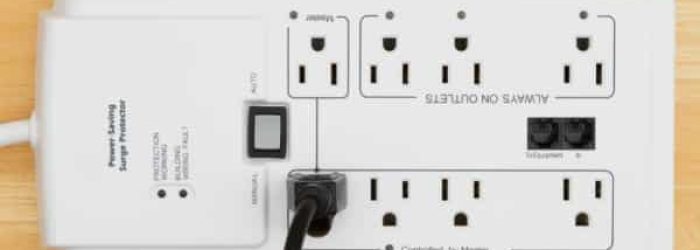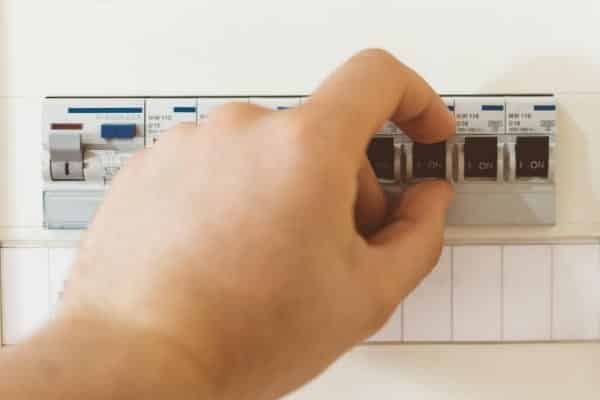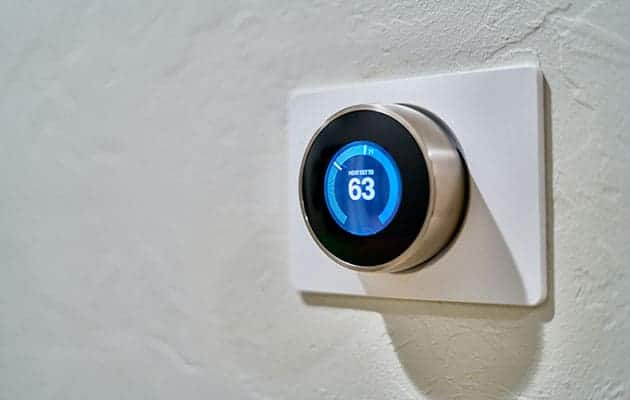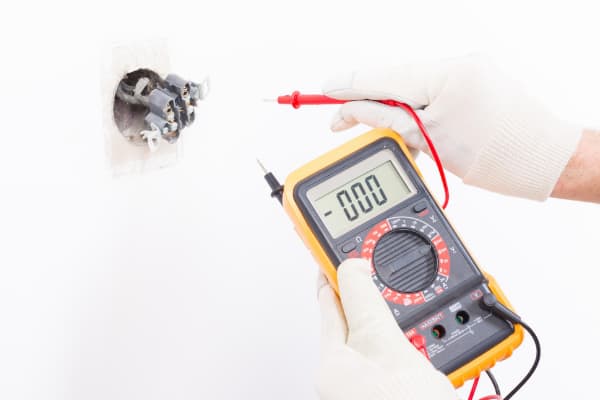Find My Local Expert When is the Best Time to...
Read More
How to Prevent Your Circuit Breaker From Tripping
Your circuit breakers perform a vital task in your home or business—keeping your appliances and even yourself safe from electrical overloads. Without breakers, it is possible that certain accidents or unfortunate circumstances could cause major problems like electrical fires, or electrocution.
The simple answer to how to stop your circuit breaker from tripping in your fuse board is to not overload your electrical circuits. Everything from your power outlets to your electrical wires is rated for a certain amount of electrical current and exceeding that will cause your breakers to trip.
Of course, there is a lot more to delve into this topic, so let’s take a closer look.
How do Circuit Breakers work?
Any material that is conductive—that can allow electricity to pass through it—has a maximum capacity. When the electrical capacity of a material is exceeded, the material starts will get hot and, in extreme cases, could even melt or catch fire.
Naturally, there are codes and regulations to ensure that electrical systems in your home (and other buildings) never face this problem. For example, different kinds of electrical wires have different ratings, and big-ticket items like electric ovens have to be on their own isolated power line.
But even with these considerations in place, there is still a need for safeguarding, and that is where circuit breakers come in.
The amount of current flowing through any given electrical wire is determined by the demand; if you turn on a light, the demand increases. A circuit breaker cuts the power going through it if the demand exceeds a certain amount. There are several sizes of circuit breakers for different electrical capacities.
Why Are Circuit Breakers Necessary?
Even with all the regulations around electrical systems, it is still possible to overload parts of an electrical network. Sticking with the example of a typical residential home, plugging too many high-powered items (electric heaters, for example) into the same area of the network could well exceed the amount of power it was rated for.
Another example is if an accident happens, such as a wire being severed. The worst case, of course, is a person coming into contact with live electrical wiring.
In these cases, the amount of current flowing through the wires increases beyond the limit of the breaker, and the breaker shuts the supply off. This prevents electrical overload from melting wires, starting fires, and, in the case of electrocution, it can save lives.
Are Breakers and Fuses the Same?
The function of fuses is essentially the same as breakers, but they are not the same. For one thing, fuses are single-use. Once a fuse has been blown, it needs to be replaced. Breakers, on the other hand, can be reset. A fuse works by passing the electrical current through a piece of conductive material that is rated for a certain amount of current, and if the current exceeds that amount, the material is destroyed, breaking the circuit.
Fuses do form an additional layer of protection in typical electrical appliances, as there will be a fuse in the plug of the item.
How is it Different From Surge Protectors?
While circuit breakers are designed to protect electrical infrastructure from the current that is too high, surge protectors are designed to protect appliances from sudden surges of current.
Many modern appliances are sensitive to sudden surges of electricity that, themselves, may not be enough to blow a fuse or trip a circuit breaker. Surge protectors essentially act as a buffer, dolling out the current at a constant rate regardless of how it is coming in.

Tips to Find the Cause of and Prevent Your Circuit Breaker Tripping
Knowing how a circuit breaker works may be useful knowledge, but it is even more useful to know how to prevent it from tripping. Here are some tips for what to try if your breaker has tripped.
Unplug Everything and Test Putting Breaker Back On
The first thing to check is that there are no problems with your electrical systems (including the breaker). The easiest way to do this is to unplug everything and see if the breaker still trips off. If you are sure that there are no appliances drawing an electrical current through that breaker, and it is still tripping, there is a fault with your electrical systems.
This fault could be the breaker itself, but it could also be a wire that has become exposed and is grounding somewhere. This could happen if animals have gnawed through the insulation on a wire.
Check for Faulty Appliances
If the breaker stops tripping with all the appliances disconnected and any other electrical items that can’t be unplugged have been turned off, that would indicate that the problem lies with one of those appliances.
The easiest way to test of for this (though not necessarily the most convenient) is to start reconnecting your appliances and seeing what triggers the breaker. If no single device triggers the breaker, it could be that you are overloading part of your electrical network with too many high-powered items.
Have Your Circuit Breaker Inspected
If you can’t find the problem, through any of the above methods, it might be time to call in the experts. Having a qualified electrician inspect your circuit breaker should let you know if the breaker itself is at fault.
The electrician will also be able to give you an idea of what the cause might be if it is not your breaker, so it is certainly worth calling one out if you are out of ideas.
Change Your Circuit Breaker (Last Resort)
Not every case can be easily diagnosed, and you may find yourself in a situation where it is worth having the breaker changed rather than spending a lot of money on rooting out the cause of the problem.
This should only be done if you have exhausted all the above options and are looking down the barrel of some costly diagnostic work, however. Changing a breaker will require a qualified electrician‘s attention.
Get a quote from an expert today!
You May Also Like...
Is Your Heater Energy-Efficient?
Find My Local Expert Is your Heater Energy-Efficient? Most people...
Read MoreElectric Shower Installation Overview
Find My Local Expert What you need to know when...
Read MoreElectric Cooker Installation
Find My Local Expert Getting Ready for an Electric Cooker...
Read More7 Things You Can Do Before The Emergency Electrician Arrives
Find My Local Expert 7 Things You Can Do Before...
Read MoreIs Your Circuit Breaker Tripping?
My Trusted Expert Guarantee
Experts Have Been Vetted & Approved




